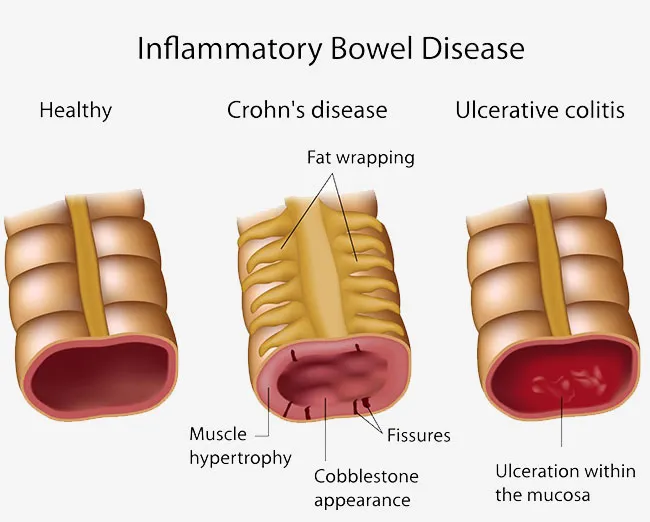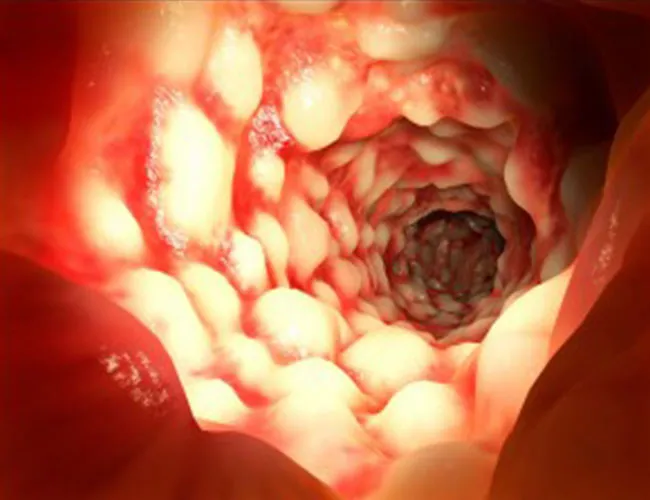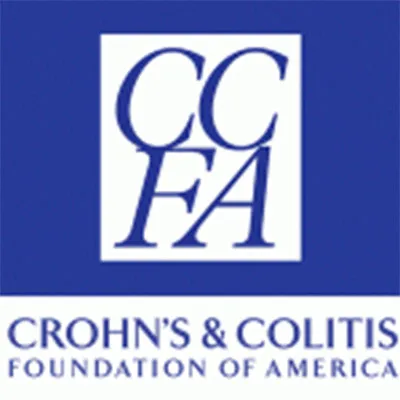


Inflammatory bowel disease (IBD) is a condition that causes chronic inflammation of the intestines. For reasons that are not yet clearly understood, the child’s immune system becomes abnormally active against his or her own intestines. Researchers aren’t sure what causes this, but IBD seems to occur as a result of genetic and environmental factors. IBD comes in two forms: Crohn’s disease and ulcerative colitis (UC).
Crohn’s affects deeper layers of the small or large intestine and can involve any part of the digestive system. UC is limited to the lining of the large intestine. With UC, the body’s immune system mistakes food and other necessary materials in the intestine for invading substances. The immune system then sends white blood cells into the intestinal lining causing inflammation and ulcerations.
The most common symptoms of IBD include diarrhea (often with blood and mucus), abdominal pain, loss of appetite, weight loss, unexplained fevers, fatigue, growth and pubertal delay.
Don’t confuse IBD with irritable bowel syndrome (IBS), a different and less severe condition. IBS is a functional gastrointestinal disorder that causes gut dysfunction and pain, but does not cause damage to or inflammation of the digestive system. It does not cause bloody stools, increase your risk for colon cancer, or cause IBD. IBD, on the other hand, is a disease where the body’s own immune system attacks the digestive system and causes permanent damage.

Crohns Disease Cobblestone Mucosa
IBD is diagnosed by finding specific changes to the intestines. To see these changes, tissue samples from the esophagus, stomach, small intestine, and large intestine are obtained, using a procedure called an upper and lower endoscopy with biopsy. IBD in kids can often be managed effectively through medication or other treatments.
You can read more about Crohn’s by clicking here and UC by clicking here.

Crohn’s and Colitis Foundation of America
If you would like more information about gastrointestinal (GI) digestive disorders and nutrition in children, please contact Dr. Mona Dave’s Frisco Office.